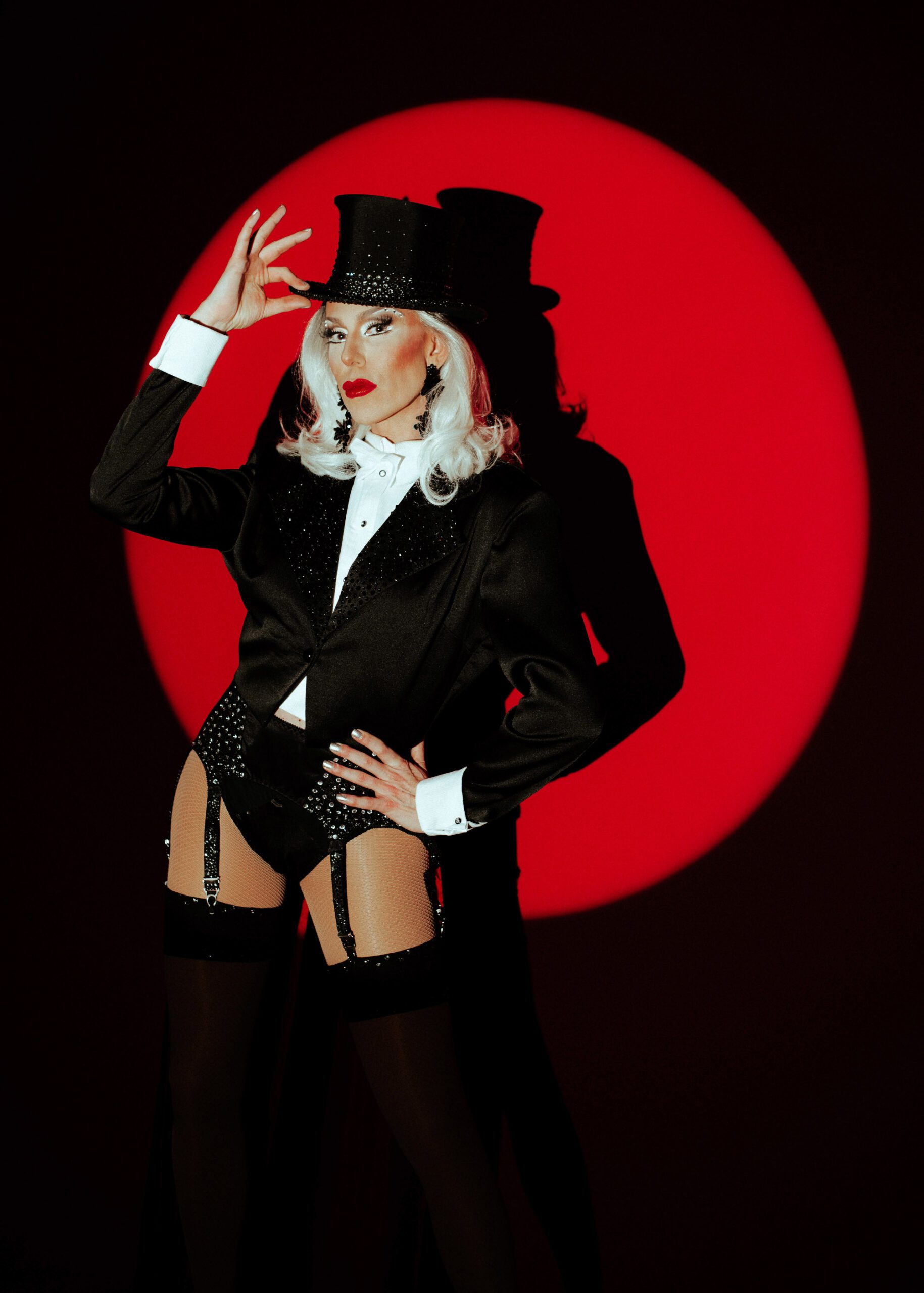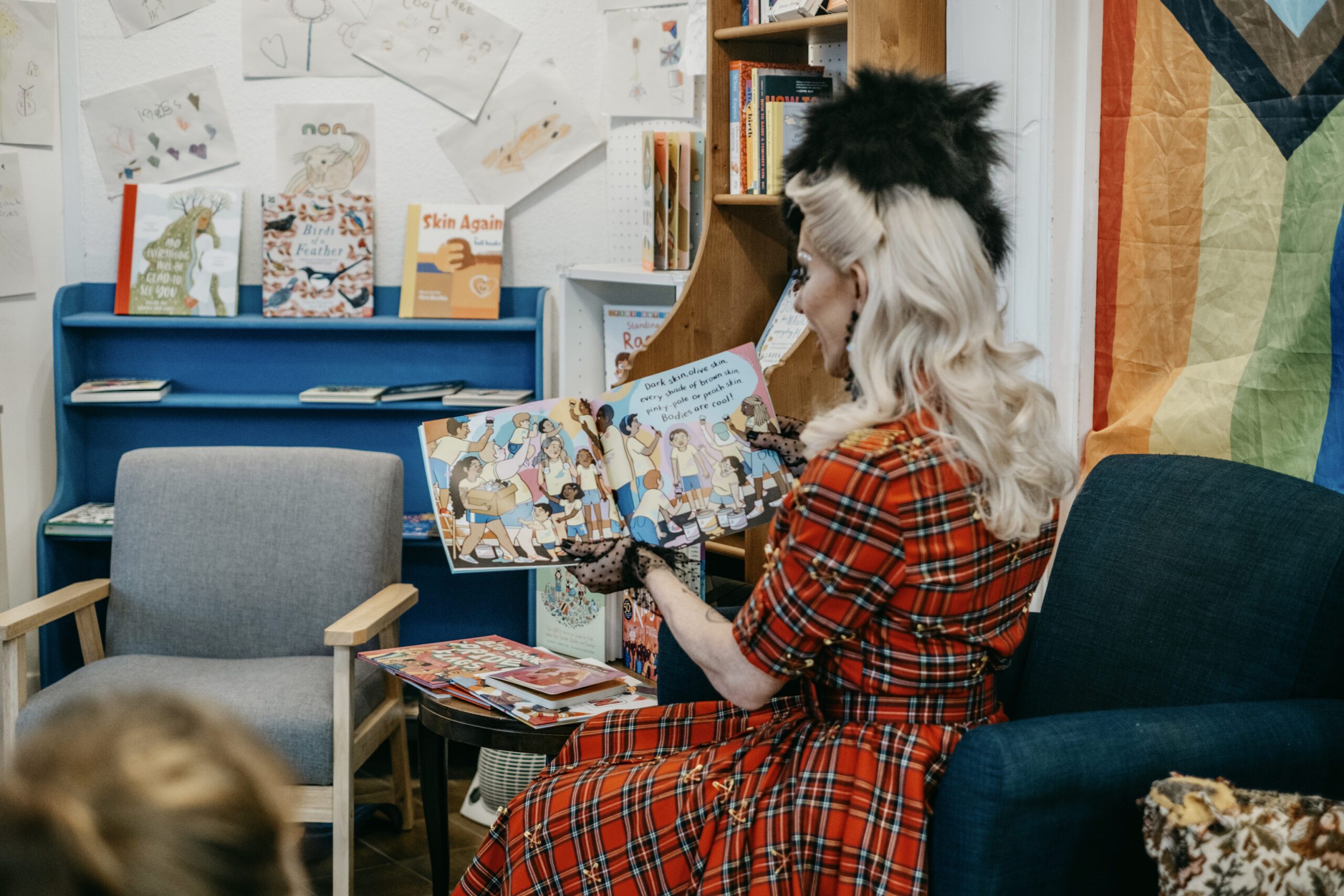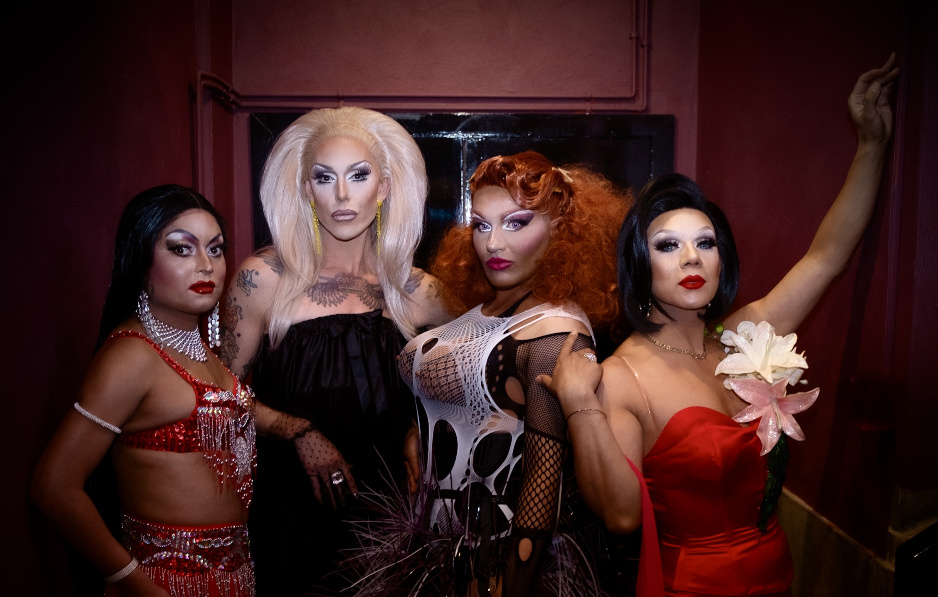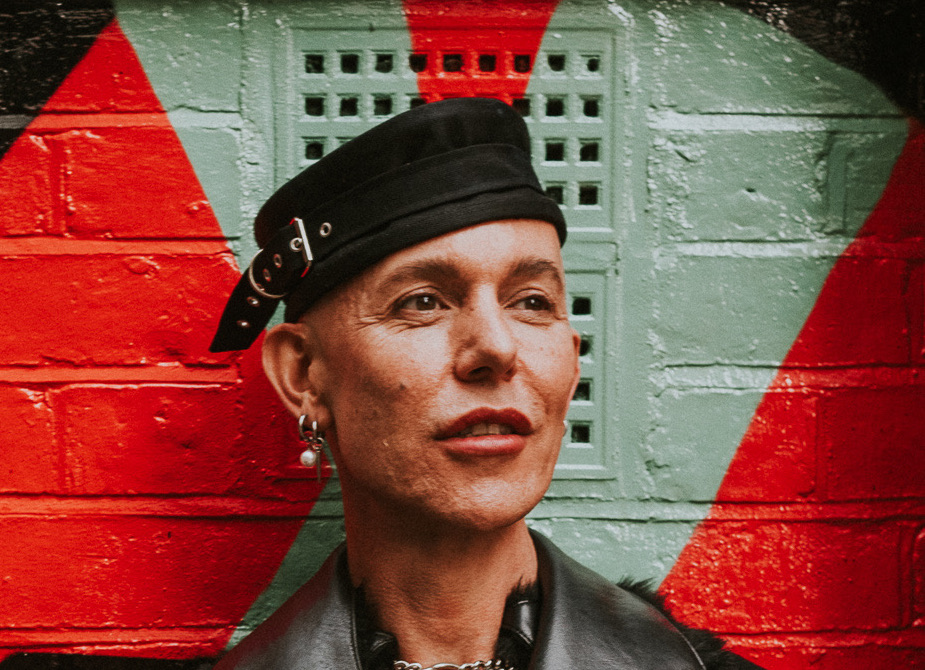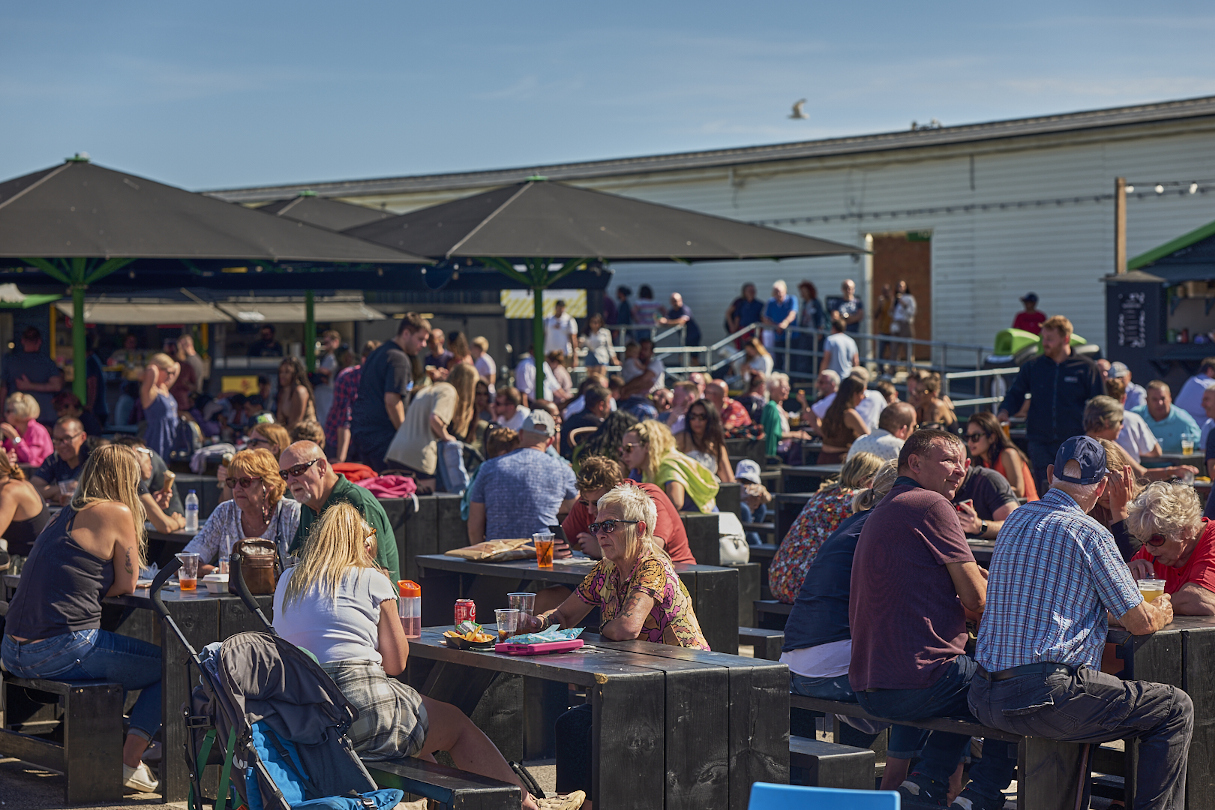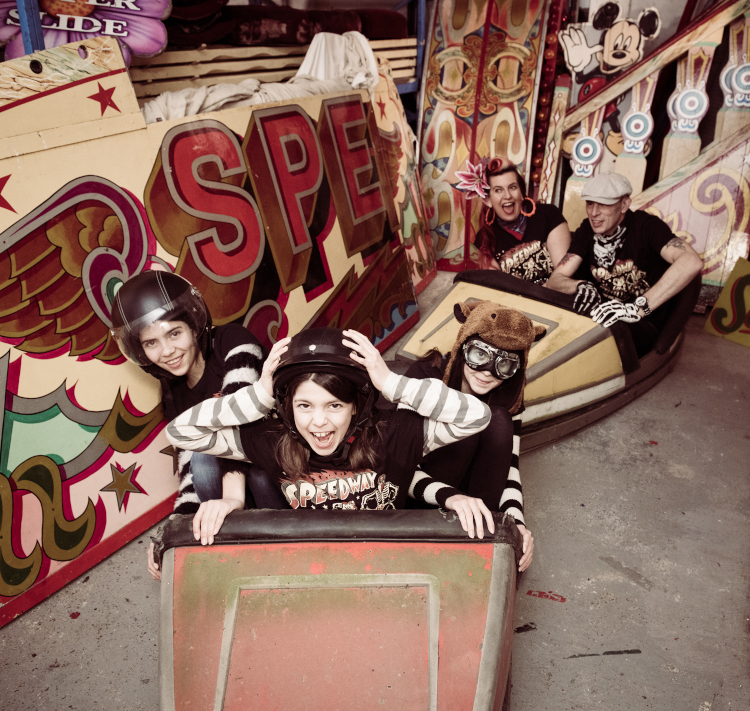Live
dan to dita – the emergence of a drag queen
Dan Laws acknowledges that it depends in which guise you met them as to what you call them. Dan Laws: the professional dancer, teacher, events producer, or Dita Garbo: the drag queen, storyteller, performer and host of many community events. Dan’s father was a fisherman in Folkestone and their mother a hairdresser, which is where their artistic creative flair comes from. Now part of RuPaul’s Drag Race UK (Series 6) Folkelife met Dan to find out how it all began.
“I was born and bred in Folkestone but moved away at age 16 to Performers Dance College in Essex. My training was for 3 years and on completion I went off to the States on my first contract with Princess Cruises at age 19. My career snowballed and I have lived and worked in Spain, Portugal and Canada and traveled around the world on cruise ships.
“The first time I performed as a drag queen professionally was when I was living in Madrid. A choreographer friend was putting on a drag cabaret show and they needed a third person. I thought that this would be fun, and a challenge, and was something I’d not done before. There were three of us, two guys and a girl, very androgynous. You couldn’t tell who was the girl and who was the boy.”
right place right time
“At that age though, growing up here as an LGBT person in Folkestone, I was very repressed. This opportunity opened my eyes to a new world of things. It was performance, which I did anyway, and it was just an extension of that.
“I do think that sometimes in life you’re in the right place at the right time. You meet certain people and that leads to other things. It’s weird how life takes you along.”
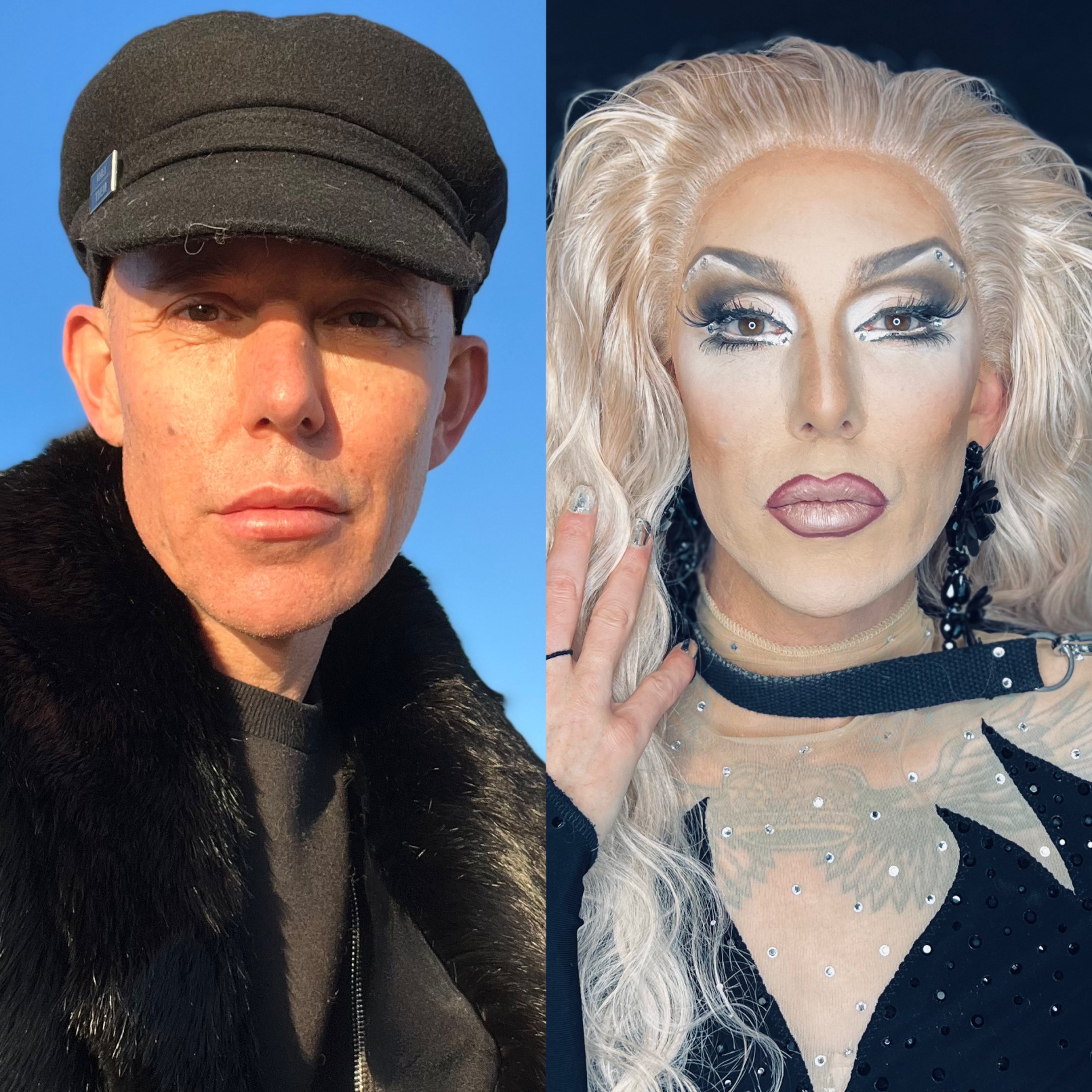
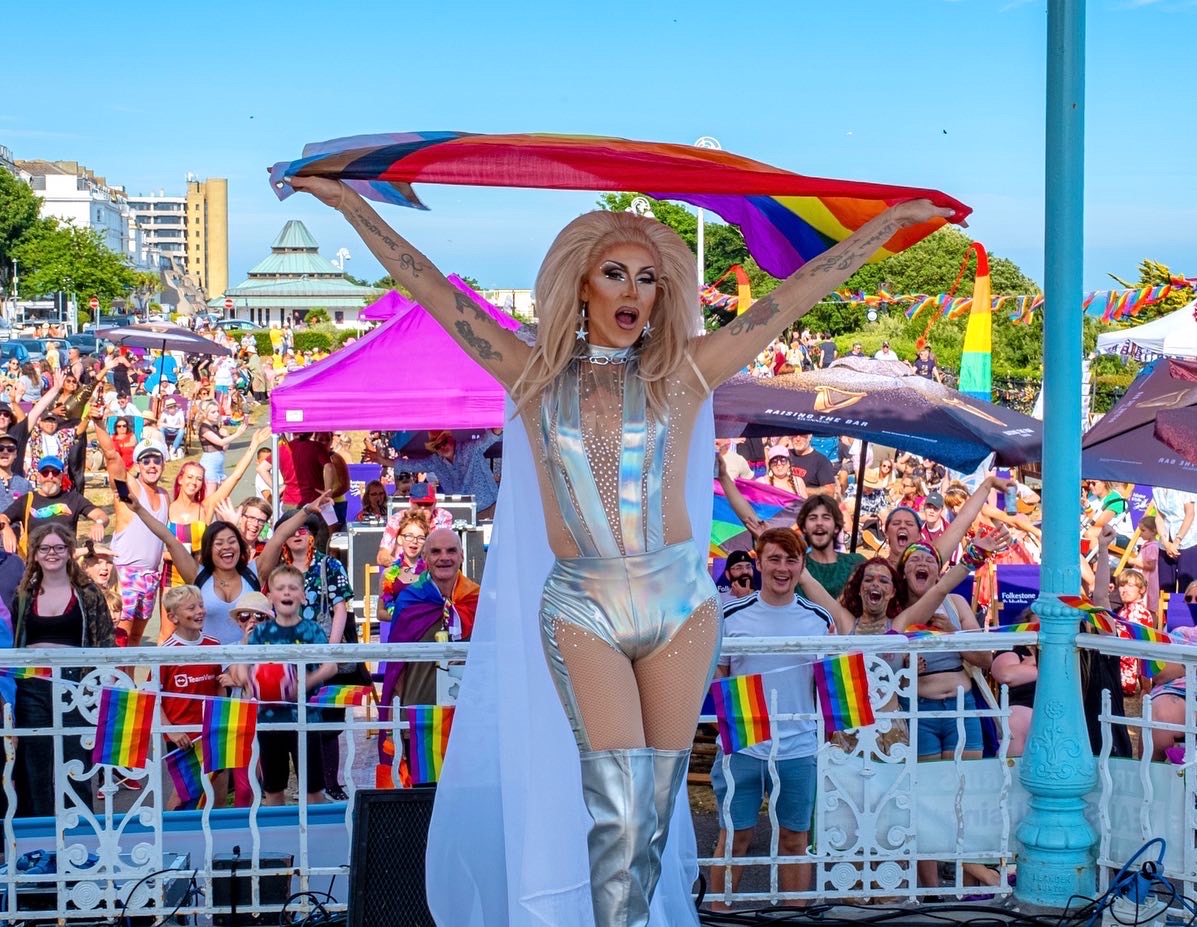
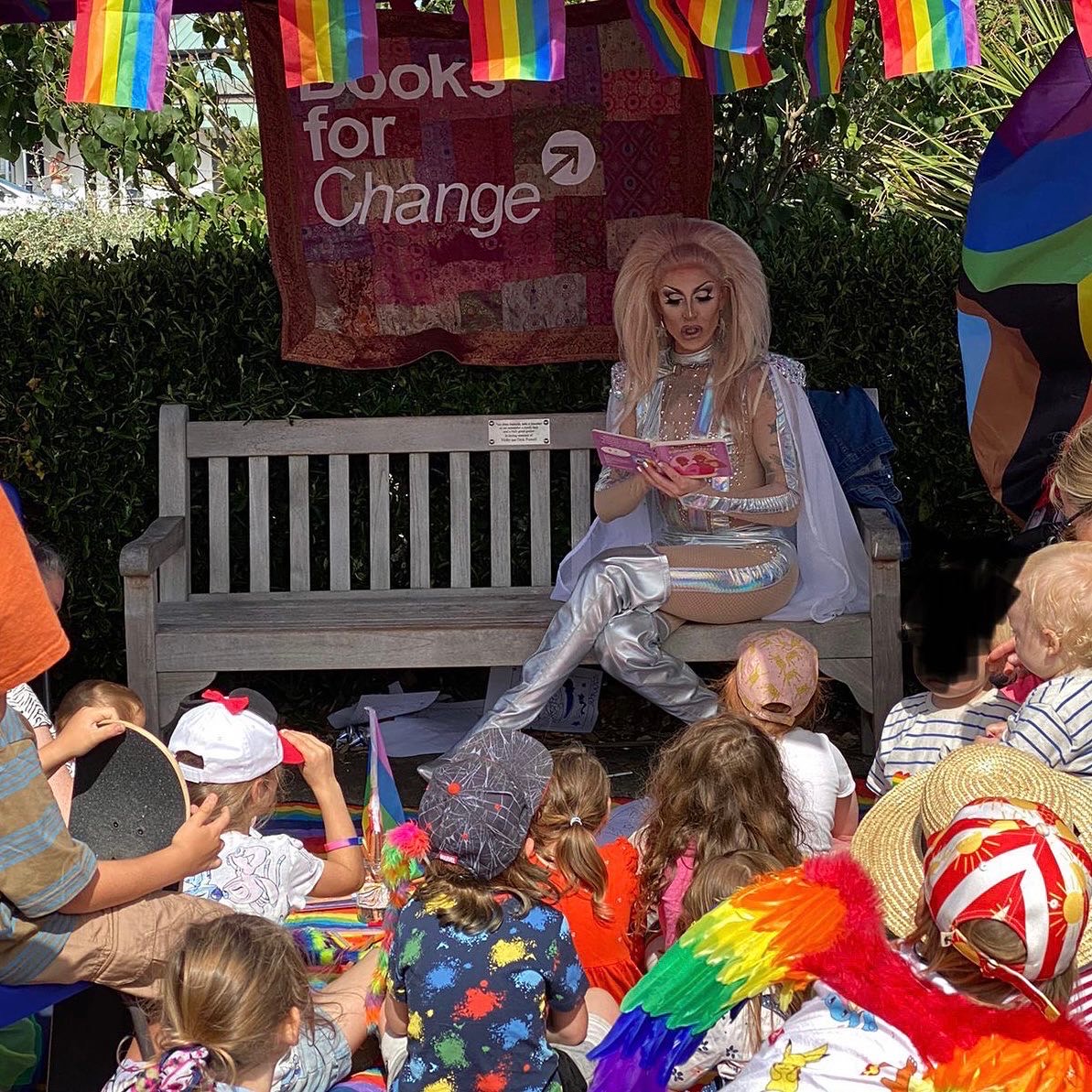
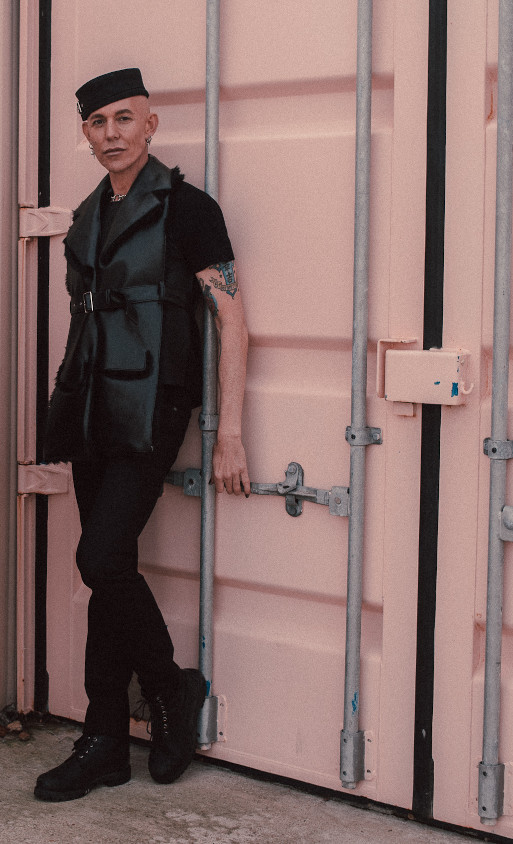
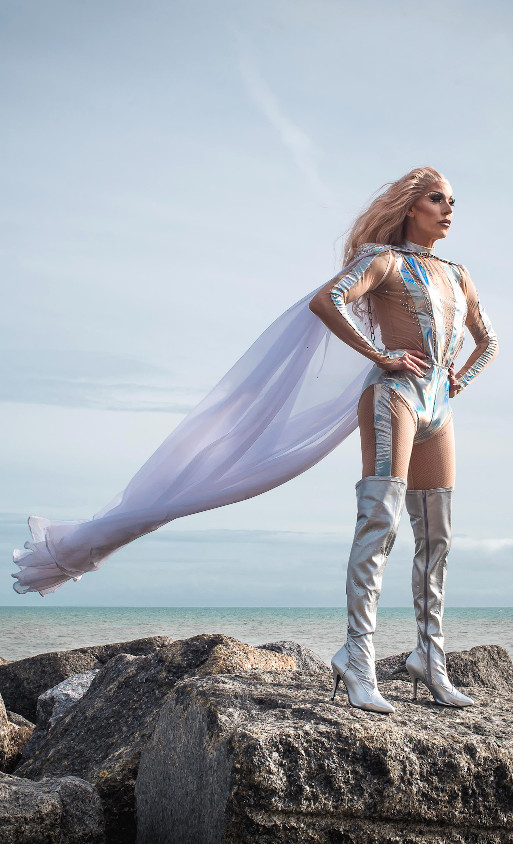
a safe space
“The dance industry is a young one. When you get to about 30, lots of younger dancers are coming in and I really wanted to leave on a high so that’s when I chose to come back to the UK. I started teaching dance here, which I’d never really wanted to do, but I did. After a while I set up my own studio – Danz Studio – which ran for 11 years but when the Pandemic hit, well, you know the story.
“That’s when I got the make-up box out though. I started to play around and dressed up. My partner said that I looked good and that I should return to performing. So Folkestone Pride 2021 was Dita Garbo’s first outing. I performed at the Pride After Party at the Harbour Arm. The thing about Pride is that it’s a safe space for LGBT+ people. It wasn’t as if I was worrying about whether Folkestone was ready for me, being at Pride means being already accepted for who you are.”
drag kings and queens and inbetweens
“From then I started to put on a bi-monthly event at The Tower Theatre. They’d always been great for my end of year dance shows and have been really supportive. I bring down acts from London and across the UK and we have sell-out nights. Drag is getting more mainstream and there are loads of really creative performers that I want to bring down to show to audiences here. And, the audiences are getting broader; this isn’t just a great evening out for the LGBT community but for everyone.
“I was asked to host the Eurovision evening at the Harbour in 2023 and that’s a real sign that Folkestone is inclusive and that drag is mainstream now. It was a real mix of people in the audience that night. There were some rowdy loud lads but I had the microphone! There were Ukranian families too and they were really welcomed. I thank the Harbour team for inviting me to host because it shows diversity, and that they’re open to including everyone and not discriminatory against anyone. And it’s these little things, once you start putting them together and adding it up the town starts to change. People’s minds start to change because they see diversity and they get used to it.”
books for change
“I met Emily who runs Books For Change and think what she’s doing is great. She’s creating and sharing books that are diverse from a race background; she goes into schools and shares these books with the teachers and children and it’s really important. I wanted to come at it from an LGBT background. Because I’ve worked with children a lot, I know how to speak to them and engage them so we started to do storytimes with me as Dita. We run workshops in schools and I have to say, I didn’t realise it was going to impact me the way it did.
“Go back to the 1980s and 90s when I was growing up in Folkestone and there really wasn’t anyone to talk to about breaking down gender, identity and stereotypes of different people. Girls can do what boys can do, and vice versa. That wasn’t what we heard when I was growing up. Boys can play with dolls; it’s important for boys to nurture as well as girls. Girls can play with Lego and football. It’s much more open now.”
de-dragging
“I went into one school as Dita and we ran our workshop. After lunch I de-dragged in front of the school. I took off my wig, and my make-up and showed them the transformation of Dita into Dan. It was incredibly powerful. We had photos up of me as Dan and Dita but it was something to connect the two by seeing one be revealed from the other. Dita is my alter ego. Dita allows me as a performer to access power and strength while giving a barrier to my personal, generally introverted being. Being LGBT you do put up a barrier to protect yourself in many situations so as not to feel as vulnerable when people attack us. Somehow it’s not so personal if that front, that alter ego is there.
“I can remember coming home after that first workshop and just bursting into tears. Growing up there was Section 28, and homosexuality wasn’t talked about; to be able to go into a school and be my true self was, well, I guess it unlocked something that had always been in a box. I’d been part of something where people could ask questions, discuss feelings and thoughts and I’d never had that experience when I was a child. I saw one teacher in tears because she had spoken to a child who was having questions about their gender and they saw that child was smiling and happy.”
Cabaret nights
“What I really want to see is more events on in Folkestone that accommodate people who perhaps don’t want to be in a pub or bar, or don’t want to be out after dark. That’s why I do storytimes in places like Folklore and The Folkestone Bookshop. I put on a Drag Extravaganza night at the Leas Cliff Hall in September 2023 which reached a wide audience and showed that this happens bi-monthly at The Tower Theatre, so broadening that audience too.
“Speedway is another great local venue which just lends itself to flamboyant celebrations and I’m in discussions about putting on some Cabaret nights there.
“And then there’s Pride. Our big parade is happened in July and I’m putting together a good show for the afternoon at the Bandstand. Then we’ll have our after party. We try with Pride to put on different events so that we can support everyone – something gentle and outside, accessible to all, and some things inside in different venues around the town. It’s important there’s something for everyone.”
non-binary
“I class myself as non-binary by which I mean that I don’t conform to the gender binary. I don’t feel overwhelmingly masculine, or feminine. There’s a spectrum and we’re all on it somewhere. Anyone can feel masculine one day, and be more in touch with their feminine side another. It doesn’t matter who you are. I go by they/them pronouns but I’m not going to get offended if you get that wrong. Dita goes by she/her or they/them. I also find that addressing anyone by they/them pronouns is polite because you’re not assuming another person’s gender or identity.
“I think it’s important to break down the binary. Don’t assume anything about people and just be respectful. Why should t-shirts or trainers be labeled as ‘men’s’ or ‘women’s’? They are items of clothing and clothing should be a form of self-expression and personal taste. If you walk into a bar and you don’t feel it’s a safe space for you then that NEEDS to change. Public places need to be safe for anyone and everyone, for children, for adults, for everyone. I am going to rejoice when we get to a day where we’re respectful of one another and just celebrate people for who they are.”
